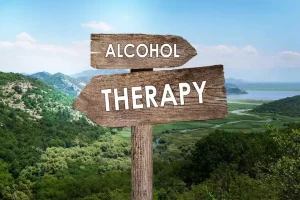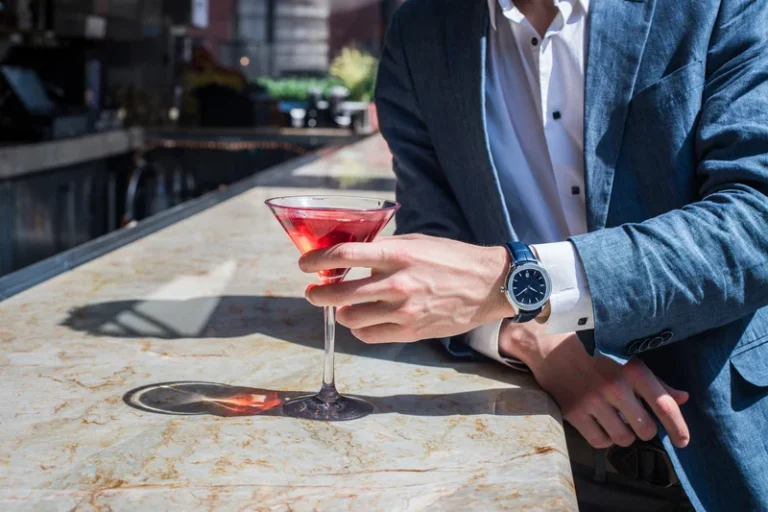Navigating Sobriety in the City: A Guide to Sober Living in NYC
22 August 2022 dans Allgemein | von fazli

Or it could be that you’ve developed a physical health problem that you know is probably due to drinking and you want to make positive changes before things get worse. If you’re not experiencing negative health effects right now, it might be a good idea to learn about what could happen if you do keep drinking. With the advent of the “sober curious” movement, more companies, restaurants, and bars have been offering various non-alcoholic drinks and mocktails that are tasty and appealing alternatives to alcohol.
Identify Your Personal Triggers
- Stability is something that both support groups and formal drug treatment strongly encourage their members to establish by creating a routine.
- This can help you focus on something positive instead of turning to alcohol.
- Counseling can help individuals identify and manage triggers that may lead to substance use.
- OngoingUpper West SideThe suburbs-born Granola Bar welcomes its first NYC location this week.
If you think you can stick with it, creating a tapering schedule and gradually reducing how much you drink is usually the best approach. If you plan to quit cold turkey (all at once), https://ecosoberhouse.com/ make sure you are well-stocked with everything you’ll need for the week—withdrawal can make you feel very ill. But there have always been plenty of folks for whom AA doesn’t work.
How to Stay Sober
Many people have found success with SMART’s alternatives to AA meetings. AA If you like the accountability and community of regular meetings, SMART Recovery may be a good option for you. While Alcoholics Anonymous (AA) is arguably the most well-known treatment for alcohol use disorder (AUD), it is not for everyone.
- Taking Suboxone (buprenorphine/naloxone) with other opioid medicines, benzodiazepines, alcohol, or other central nervous system depressants can cause breathing problems that can lead to coma and death.
- I found myself witnessing shady drug deals and conversations about doctors handing out Xanax and opioids like candy (because if it’s prescribed, it must be okay, right?).
- Researchers found that 24% of AA or 12-step participants remained fully abstinent from alcohol after 12 months (2).
- Others may have had negative experiences with AA in the past and are seeking alternative methods of support.
- I tried to go to AA the first time I got sober, and it was not a good fit for me.
Stop Guessing! Here’s Which Phase of Strategic Conflict Management You Can Ignore
For many years, the accepted options were to send folks to 30-day inpatient treatment or told them to go to AA. But there are other options, and as a society, we’re beginning to accept that those other options work. Exercise can support your recovery by boosting your brain, battling the brain disorder of alcohol use disorder.
- The best part about Swan was they also allowed us to use their facility as a safe place to inject heroin and other drugs.
- In fact, your journey to sobriety will likely involve strengthening some relationships and purging others.
- Or it could be that you’ve developed a physical health problem that you know is probably due to drinking and you want to make positive changes before things get worse.
- Sobriety can be a particularly challenging pursuit for someone with an addiction like alcohol use disorder.
- Evidence-based addiction treatment uses the current and best research-based evidence to make informed decisions about your rehab care.
- There are many alternatives to AA that can help individuals overcome addiction and maintain long-term Sobriety.
This article will describe sobriety in more detail, the challenges a person faces while working to stay sober, the options for treatment, and tips for building a sober lifestyle. Recovery from alcohol addiction is challenging, and not one that should be pursued alone. But if AA or recovery groups in general aren’t for you, consider meeting with a counselor to help you create healthy coping mechanisms and beneficial means of dealing with unwanted thoughts and behaviors. Our treatments are tailored to serve each person’s unique needs and you can read about both Oar members who want to quit drinking entirely as well as Oar members who want to moderate their drinking. Their program teaches skills that can help you stay motivated in your sobriety and cope with cravings.

Build Healthy Relationships

The people who cannot understand your moments of pride in sobriety aren’t the ones you need around you anyways. I assure you that if you surround yourself with other sober people, they will understand why you feel proud of what you’ve accomplished and (usually) celebrate with you. That said, here are 4 things I have learned that are useful in getting sober from alcohol without AA. I’ve also witnessed the fantastic potential and empowerment that often emerges by building relationships with people in recovery.
years sober + 4 tips for sobriety without AA
Nevertheless, many people in the rooms end up “white-knucking” their way through sobriety, especially in the early stages. Strong cravings can make it feel like a battle of wills between you and alcohol. Staying sober without AA can be challenging, but it’s not impossible. One effective way to stay sober is to develop coping mechanisms that work for you. Coping mechanisms can be anything from meditation to hobbies, such as painting or playing an instrument. It offers a variety of tools and techniques, such as self-monitoring, goal-setting, and cognitive-behavioral therapy, to help individuals achieve their goals.
It’s one thing to recognize a need for getting sober; it’s entirely another to actually do it. Matt Hunt is a documentary photographer connecting with getting sober without aa people, sharing moments, and telling stories in Southeast Asia. Self-belief is not all-or-nothing, and the approach to it as such is futile.
- My company, Workit Health, has offers online, science-backed courses to help you beat alcohol use disorder from your computer or phone.
- Whenever you get a craving, distract yourself by doing something you enjoy, like watching TV, learning a new hobby, or cooking a meal.
- It was so empowering to finally be able to think for myself—to not adhere to these set out rules that I can’t relate to and that only induce fear and direct my behavior.
- One study found that 68% of people treated in a detox unit experienced moderate alcohol withdrawal symptoms.
- Triggers for using drugs and alcohol typically are people, places, and things that remind you of your addictive behavior or encourage the use of substances you’re avoiding.
- They can help to identify how mental illness played into excessive consumption of alcohol and provide specific methods for overcoming those challenges.
No matter your situation, Dr. Das emphasizes the power of enlisting help as you embark on a life sans booze. Avenues NYC strives to foster a supportive, safe, comfortable, community-oriented sober environment in which residents can build a lasting lifestyle of health and wellness. Several establishments in NYC cater exclusively to the sober community, offering alcohol-free alternatives, live music, and a vibrant social atmosphere without the pressure to consume alcohol. You can learn more about treatment through some of our sobriety stories.

I experienced it myself over years of painful accidents, depression, and near-death alcohol withdrawal. This can include toxic relationships in which you feel unheard, misunderstood, unsupported, demeaned, unsafe, and/or attacked. Then, the first few weeks of sobriety are when relapse risk is highest.

 gefällt mir
gefällt mir